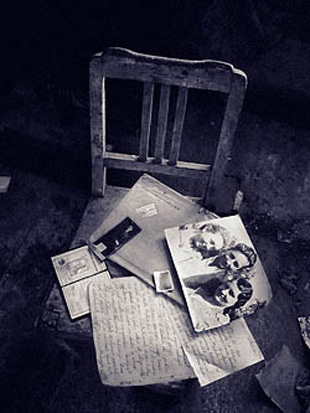CINEMA E LINGUAGEM: O CINEMA POÉTICO EM “O ZERO NÃO É VAZIO”, DE
Palavras-chave:
Documentário, Poesia, Linguagem cinematográfica.Resumo
Este estudo tem por objetivo demonstrar, a partir do documentário “O zero não évazio”, de Marcelo Masagão e Andréa Menezes, como é possível trabalhar a linguagemcinematográfica utilizando-se de elementos próprios, isto é, como o cinema permite que se
constitua uma linguagem poética explorando seu potencial de imagens, movimentos, sons e
personagens. Segundo os diretores desse documentário, o projeto inicial tinha como escopo
demonstrar a escrita de pessoas com distúrbios psiquiátricos, conferindo um estatuto a essas
escritas marginalizadas. No entanto, ao perceber a profundidade conferida pelas imagens,
Masagão optou pela “construção” de um retrato dessas pessoas que omitisse a principal
característica que o despertara para seu projeto: “escondera” o histórico clínico psiquiátrico
dessas personagens. Ao propor isso, entendemos que o diretor desenvolveu o que chamamos de
um documentário de retrato pessoal, pois “os documentários que são um retrato pessoal do
cineasta consideram as questões sociais de uma perspectiva individual” (NICHOLS, 2005,
p.206). Partindo dessas considerações, pretendemos tomar o cinema como uma linguagem capaz
de realizar um trabalho poético, reconhecendo que, embora ainda sofra influências de outras artes
– principalmente a literária, nesse caso – possui elementos que o possibilitam configurar como
uma linguagem própria.
Downloads
Downloads
Publicado
Como Citar
Edição
Seção
Licença
Aviso de Direito Autoral Creative Commons
Política para Periódicos de Acesso Livre
Autores que publicam nesta revista concordam com os seguintes termos:
1. Autores mantêm os direitos autorais e concedem à revista o direito de primeira publicação, com o trabalho simultaneamente licenciado sob a Licença Creative Commons Attribution que permite o compartilhamento do trabalho com reconhecimento da autoria e publicação inicial nesta revista.
2. Autores têm autorização para assumir contratos adicionais separadamente, para distribuição não-exclusiva da versão do trabalho publicada nesta revista (ex.: publicar em repositório institucional ou como capítulo de livro), com reconhecimento de autoria e publicação inicial nesta revista.
3. Autores têm permissão e são estimulados a publicar e distribuir seu trabalho online (ex.: em repositórios institucionais ou na sua página pessoal) a qualquer ponto antes ou durante o processo editorial, já que isso pode gerar alterações produtivas, bem como aumentar o impacto e a citação do trabalho publicado (Veja O Efeito do Acesso Livre).
Licença Creative Commons
Esta obra está licenciada com uma Licença Creative Commons Atribuição-NãoComercial-CompartilhaIgual 4.0 Internacional, o que permite compartilhar, copiar, distribuir, exibir, reproduzir, a totalidade ou partes desde que não tenha objetivo comercial e sejam citados os autores e a fonte.



